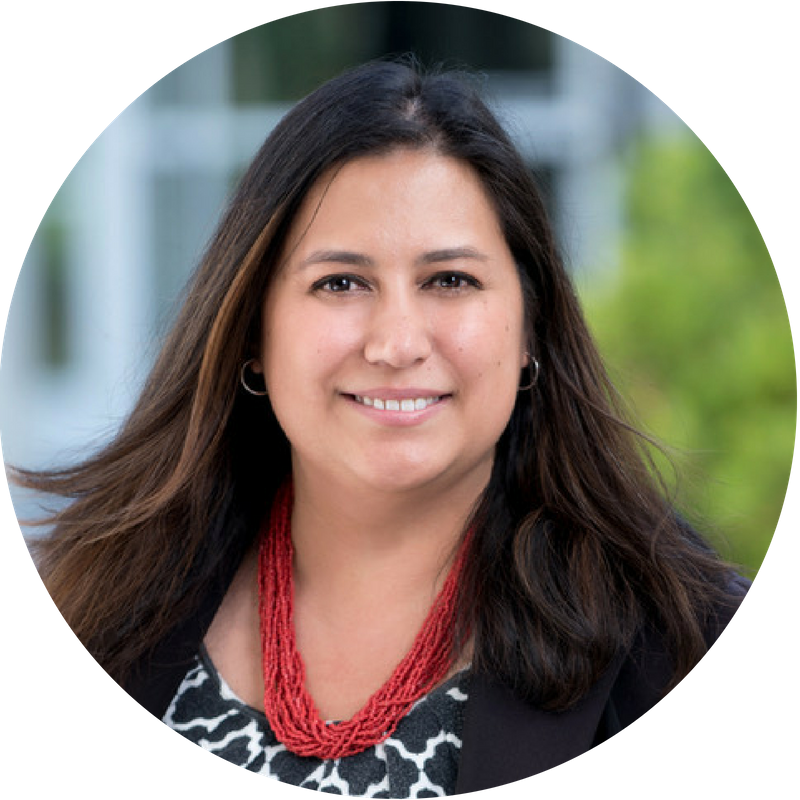The FIGT Research Affiliate held a virtual webinar with Dr. Mari Korpela on 26 June to reflect on how socioeconomic differences may impact the TCK experience.
.png)
The FIGT Research Network (FRN) Affiliate held an online seminar on 26 June 2020 with Dr. Mari Korpela to reflect on the impact of socioeconomic differences on the Third Culture Kid (TCK) experience. Dr. Sachiko Horiguchi and Dr. Danau Tanu joined as discussants and Sarah Gonzales, Chair of the FIGT Research Network, hosted the event.
The diversity among TCKs
The prevailing image of TCKs and expat kids is of privileged, globe-trotting children who take pride in feeling at home in airports. While there is some emerging awareness of the diversity in the experiences of TCKs, much has been left unsaid about differences among TCKs.
In reality, some TCKs are not as privileged or well off as others. Many grow up under circumstances very different from those of the globe-trotting image, depending on their home or host countries and why and how their families move across borders.
Mari, an anthropologist studying transnational mobility, had been working with the mobility literature throughout her career. She came across the term “TCK” when she was already conducting her research among “Western” children in India.
She pointed out that the widely used definition for “TCK” implies—but does not necessarily spell out—that the TCKs are relatively privileged. However, TCKs are a much more diverse group than is usually acknowledged, as she is finding through her research in India, and Finland.
“Western” children in Goa, India
Mari conducted ten months of ethnographic research among 4-12-year-old lifestyle migrant children in Goa, India (2011-2013). Lifestyle migrants are people who move abroad to find what they define as a better quality of life, namely, a more relaxed and more meaningful life (Benson & O’Reilly 2009).
These children fit well the definition of a TCK because they are spending a significant proportion of their developmental years in a culture other than their parents’ culture and they are relatively privileged. However, they are different from the “typical” TCK whose parents are career expatriates or representatives of their country or organization abroad.
The children are privileged in having passports that enable them to easily cross international borders. The families can also afford a higher standard of living in Goa—an important reason why they prefer living there instead of in their passport countries.
At the same time, these families are vulnerable because their incomes based on the (informal) tourism industry are susceptible to circumstances, and their residence statuses are insecure as the families need to renew their visas frequently and can never be sure which kind of a visa will be given each time.
TCKs in Finland
Since September 2019, Mari has been conducting ethnographic research on TCKs in Finland. Finnish companies recruit highly skilled professionals from abroad to work temporarily in the country and many are accompanied by their spouses and children.
Finland is unique in that many international schools are free municipal schools. These schools host a diverse student population: some children are from much more affluent families than others, and there are observable differences among TCKs in their economic and material circumstances.
The experiences of these TCKs can differ depending on the family’s situation, motivation and background. Some families invest money and resources in their lives in Finland; others view their stay in Finland as temporary and do not aim to have the same material standard of living in Finland as they did in their passport countries, to which they intend to return.
Differences in TCK families’ situations
Mari pointed out that nowadays, many families move internationally as career expatriates but without luxurious expatriate packages from their employers. That is, they are skilled professionals who work in relatively well-paying jobs but whose employers do not pay for all, or any, of the families’ travel and living costs.
The situation of each expatriate family depends on many variables such as the parents’ work contracts and affiliated benefits, the privileges allowed in a particular country, and each family’s economic situation. Moreover, race, ethnicity, and nationality affect the expatriates’ position in complex ways, shaping the experiences of the TCKs.
Mari stressed that we need to pay attention to such differences among TCKs and to examine what the position of assumed privilege means. One can be both privileged and restricted or marginalized at the same time.
Mari advised researchers to be careful to avoid making a priori assumptions on the TCKs’ status and position when formulating interview questions or questionnaires.
She also emphasized the importance of long-term ethnographic research; only with time can one gain insights into the subtle differences among TCKs.
Mari ended her presentation by noting that it is important to include young children in TCK studies. They may not be able to reflect on their identities in the same way as teenagers or young adults do but there is much more to the TCK experience than identity issues. Young TCKs are living as TCKs here and now, and therefore, their views and experiences on their international lives are highly valuable.
Reference
Benson M and O’Reilly K (2009). Migration and the search for a better way of life: A critical exploration of lifestyle migration. Sociological Review 57(4): 608–625.
Speaker bios
 Mari Korpela, PhD, is a social anthropologist and an Academy Research Fellow at the Faculty of Social Sciences in Tampere University, Finland. She has extensive research experience among lifestyle migrants and expatriates. Mari is also the President of the Finnish Anthropological Society and the Director of the Lifestyle Migration Hub hosted by Tampere University (research.tuni.fi/lifestyle/). Her current research project is titled, Expatriate Childhood: Children's Experiences of Temporary Migration.
Mari Korpela, PhD, is a social anthropologist and an Academy Research Fellow at the Faculty of Social Sciences in Tampere University, Finland. She has extensive research experience among lifestyle migrants and expatriates. Mari is also the President of the Finnish Anthropological Society and the Director of the Lifestyle Migration Hub hosted by Tampere University (research.tuni.fi/lifestyle/). Her current research project is titled, Expatriate Childhood: Children's Experiences of Temporary Migration.
 Sachiko Horiguchi, PhD, is Associate Professor of Anthropology at Temple University Japan Campus. She obtained a D.Phil. from the University of Oxford under the supervision of Professor Roger Goodman, a leading scholar on the kikokushijo (a Japanese term for returnee children). Sachiko’s research interests lie in social and medical anthropology, focusing on youth mental health issues, education, and emerging multiculturalism in contemporary Japan.
Sachiko Horiguchi, PhD, is Associate Professor of Anthropology at Temple University Japan Campus. She obtained a D.Phil. from the University of Oxford under the supervision of Professor Roger Goodman, a leading scholar on the kikokushijo (a Japanese term for returnee children). Sachiko’s research interests lie in social and medical anthropology, focusing on youth mental health issues, education, and emerging multiculturalism in contemporary Japan.
 Danau Tanu, PhD, is the author of Growing Up in Transit: The Politics of Belonging at an International School and an Honorary Research Fellow at the School of Social Sciences of the University of Western Australia. She has published ethnographic studies on Third Culture Kids and mixed-race identities and was recently awarded a postdoctoral fellowship at Waseda University by the Japan Foundation. Danau is a Co-Chair of the FIGT Research Network.
Danau Tanu, PhD, is the author of Growing Up in Transit: The Politics of Belonging at an International School and an Honorary Research Fellow at the School of Social Sciences of the University of Western Australia. She has published ethnographic studies on Third Culture Kids and mixed-race identities and was recently awarded a postdoctoral fellowship at Waseda University by the Japan Foundation. Danau is a Co-Chair of the FIGT Research Network.
 Sarah Gonzales is Director of Graduate Programs at the University of Nevada Las Vegas (UNLV) School of Law. She also serves at NAFSA: Association for International Educators, teaching Intercultural Communication in Practice, Admissions and Placement of International Students, and Assessment and Evaluation for International Educators. Sarah is currently pursuing doctoral research on the intersection of cultural intelligence and mediation skills of TCKs. She is Chair of the FIGT Research Network.
Sarah Gonzales is Director of Graduate Programs at the University of Nevada Las Vegas (UNLV) School of Law. She also serves at NAFSA: Association for International Educators, teaching Intercultural Communication in Practice, Admissions and Placement of International Students, and Assessment and Evaluation for International Educators. Sarah is currently pursuing doctoral research on the intersection of cultural intelligence and mediation skills of TCKs. She is Chair of the FIGT Research Network.
 FIGT Research Network aims to bring together producers and consumers of research that promotes cross-sector connections to support the growth, success and well-being of people crossing cultures around the world. Its first 2020 webinar was on “‘Third Culture Kids’: The History & Future of the Term in Research.”
FIGT Research Network aims to bring together producers and consumers of research that promotes cross-sector connections to support the growth, success and well-being of people crossing cultures around the world. Its first 2020 webinar was on “‘Third Culture Kids’: The History & Future of the Term in Research.”
If you would like to connect or join our future events, please visit our FRN webpage.

